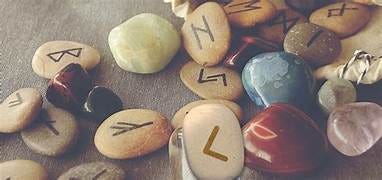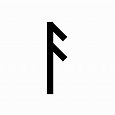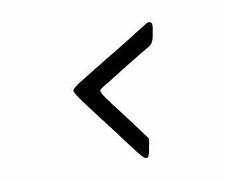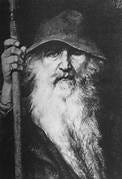
Today is April Fool’s day, correlating with The Fool in the Tarot, or The Joker in playing cards, and The Fool may also be acting as The Trickster. The exact origins of April Fool's Day as a British and European tradition are not known. This date may been associated with pranksters since the times before Chaucer and the writing of The Canterbury Tales, but this is disputed.
This from Wiki..."In 1508, French poet Eloy d'Amerval referred to a poisson d'avril (April fool, literally "April's fish"), possibly the first reference to the celebration in France. Some historians suggest that April Fools' originated because, in the Middle Ages, New Year's Day was celebrated on 25 March in most European towns, and those who celebrated New Year's Day on 1 January made fun of those who celebrated on other dates by the invention of April Fools' Day."
The court jester takes risks in speaking truth to power, with a prod of a pigs bladder on a gaudy stick, brandished as an alternative sceptre.
The Joker or The Fool, as in The Fool on The Hill, Fool stands for the portal of The Unknowable, and on a mundane level talks about surprises, fresh starts, new beginnings, new offers, opportunities, and even physical births.
The Fool is ruled by the element of Air, and correlates with the planets Mercury and Uranus, and the number Zero.

Photo by Soham Rathod on Unsplash
The appearance of The Fool in a tarot reading is very welcome news indeed, more often than not in my own reading experience. The Fool can be our friend, promising a longed for breakthrough or arrival. It can be detecting a liberation.
The Fool is a free spirit, but not entirely human in its scale of effects. But…that Zero…and The Trickster. Add in Uranus, planetary rebellious up-ender of norms whether with good or bad outcomes, or the cunning double-agent Mercury if it is not well disposed, this is the most numinously powerful card in the deck in my opinion.
But whether he is well disposed or not, there is nothing funny about The Fool. Or The Joker. The Vikings knew. Batman knew. I was chewing on this, writing this poem. And it scared the bejeez out of me.
The Fool
Zero draws the Number of the Fool
But only fools will fail to fear
The oddly smiling one who walks alone
Magician, outland, dawn and dusk
Fleeting, glimpsed by tree and mere
Where ripples lap without a breeze
Or single casting of a stone
Zero, Odin’s one remaining eye
His other traded for all kenning
Out-with the knowing of the Norns
Nine days he hung considering
On Yggdrasil, the great ash tree
But Life is flux
And unfulfilled
Odin, hungry, walks abroad with Men
Entranced, he follows their technology
Their blindly restless struggles to get free
Refusing that their final liberty
Is in their choice of sacrifice
Their ultimate expression
In their direst of necessity
Insatiably, dispassionate, he watches, waits
And sometimes smiles, but has no tears
For what might dim or blind his sight
Of conjuring and reckonings with Fate
The new-born come and dead depart
His scouts of Thought and Memory
Twin ravens, Hugin, Munin, fly
Through Odin’s questing, flaming Eye
The singing echo-chamber of The Gate.
-Katie-Ellen Hazeldine, 2016
Runes of April Fool’s Day

The Fool card can be connected with two of the old Norse gods, Odin, the and Loki the Trickster. Many folk would think of Loki first in connection with The Fool, and they would not be wrong. But I am keeping Odin right in there.
The rune of Odin is ANSUZ, representing the letter A in the Germanic alphabet. We get the modern word ANSWER from this same proto-Germanic word root. If we draw this rune in a reading, it signifies that we will hear good advice. But it is also the rune or oratory, public speaking and so it is the rune of writers, poets, teachers, politicians. It is a lucky rune, denoting success if we are sitting exams, and may be invoked for energetic support by drawing it, saying its name and asking its support. It has another name OS, meaning “mouth” as in oral, and so we see why it is the rune of public speaking.

The other rune associated with The Fool and The Joker is The Trickster, Loki’s rune, KENAZ, the letter K in the old Norse alphabet. Kenaz is a fire rune, suitable for Aries season. It signifies both inner and outer fire, our life force, and means “Beacon” or “Torch”. We pass the torch. We light a beacon. From this word root we get the modern words canny, meaning shrewd, and uncanny meaning supernatural or weird. The old verb kenning means “to know.” This rune stands for learning, study, new insights and even eureka moments. This rune can also mean an ulcer, as in an open wound, whether this is physically literal or metaphorical.

The Fool and the Number Zero
Let’s get this from an expert. Source: Scientific American
“The number Zero as we know it arrived in the West circa 1200, most famously delivered by Italian mathematician Fibonacci (aka Leonardo of Pisa), who brought it, along with the rest of the Arabic numerals, back from his travels to north Africa. But the history of zero, both as a concept and a number, stretches far deeper into history—so deep, in fact, that its provenance is difficult to nail down.
There are at least two discoveries, or inventions, of zero," says Charles Seife, author of Zero: The Biography of a Dangerous Idea (Viking, 2000). "The one that we got the zero from came from the Fertile Crescent." It first came to be between 400 and 300 B.C. in Babylon, Seife says, before developing in India, wending its way through northern Africa and, in Fibonacci's hands, crossing into Europe via Italy.
Initially, zero functioned as a mere placeholder—a way to tell 1 from 10 from 100, to give an example using Arabic numerals. "That's not a full zero," Seife says. "A full zero is a number on its own; it's the average of –1 and 1."
It began to take shape as a number, rather than a punctuation mark between numbers, in India in the fifth century A.D., says Robert Kaplan, author of The Nothing That Is: A Natural History of Zero (Oxford University Press, 2000). "It isn't until then, and not even fully then, that zero gets full citizenship in the republic of numbers," Kaplan says. Some cultures were slow to accept the idea of zero, which for many carried darkly magical connotations.
… I think there's no question that one can't claim it had a single origin," Kaplan says. "Wherever you're going to get placeholder notation, it's inevitable that you're going to need some way to denote absence of a number."
Astrology
These are fiery and treacherous times in world events. The solstice astrology is doing its fiery thing unabating, and Mercury also went retrograde in the fire sign Aries on March 14 and stays retrograde until April 6/7 depending where we are in the world. We need to stay cool under pressure, avoid heated arguments, be careful what information we share, and what we take at face value. Be careful not to fall over and bang our heads, or get stung bitten on the face by a flying bug or insect.
But there is a harmonious Mars and Saturn trine today. And Mars and Saturn are sextile Uranus until April 5. These are benevolent transits for breakthroughs and innovations, and helpful medical interventions. Saturn is the strict but principled elder, the teacher and sage who teaches tough lessons, not with malice, but not avoiding discomfort as a means of directing our attention to where we are wasting precious time and resources, to what hurts, to what is in disorder. Saturn demands careful thought, resources, effort and concentration to restore order.
Mars represents our driving force and energy levels, and how we activate ourselves to get what we want. Mars tells us about our desires, sensuality, courage and will. It also tells us about how we are able to overcome obstacles and how active we are.
Saturn is the anchor, the source and the sense of continuity. Mars aims for the future. Saturn and Mars together can make strides. This trine is well-aspected for two people who have decided to work together.
But I am giving Odin the last word this time.
The Out-Walker

Photo by Kristijan Arsov on Unsplash
There he was again, standing on the rise beneath the alder, the flickering figure cast in shadow. The two circling ravens were surely Huginn and Munin, whispered the people in the village, Thought and Memory, the twin scouts of Odin the All-Father, greatest of all the gods of the Aesir.
But why was he here? What did Odin want? What could anyone give this great and terrible God that he had not willingly surrendered long ago, trading one of his own eyes in exchange for the knowledge of All Things, hanging on the great Ash tree?

Photo by Alexandr Rusnac on Unsplash
Only the most supreme courage could please him, and bloody deaths in battle could please him. Only the warriors rejoiced, or pretended to, at the shadowed presence on the hill, as the word passed. He is here again.
But Odin could not stay away. Warriors dreamed of immortality. Of Valhalla.

But Odin dreamed of warmth, laughter, friends at the table, a beer in his hand, a woman in his bed, a baby on his lap, a dog at his feet. He had no god to worship, to pray to. No higher deity to invoke him, and over him the skies were empty. But he knew…he knew that Ragnarok would end all things. The wolf would eat the sun, and he, Odin, he too, would be destroyed.
Odin was sleeping in the Hall of the Gods. Odin was in Asgard, dreaming of standing on the hill beneath the alder, dreaming of the village and the warmth of his welcome there.
But the people in the village could not know he meant no harm.
Not this time.
KEH 2025
Happy Fool's Day one and all.

